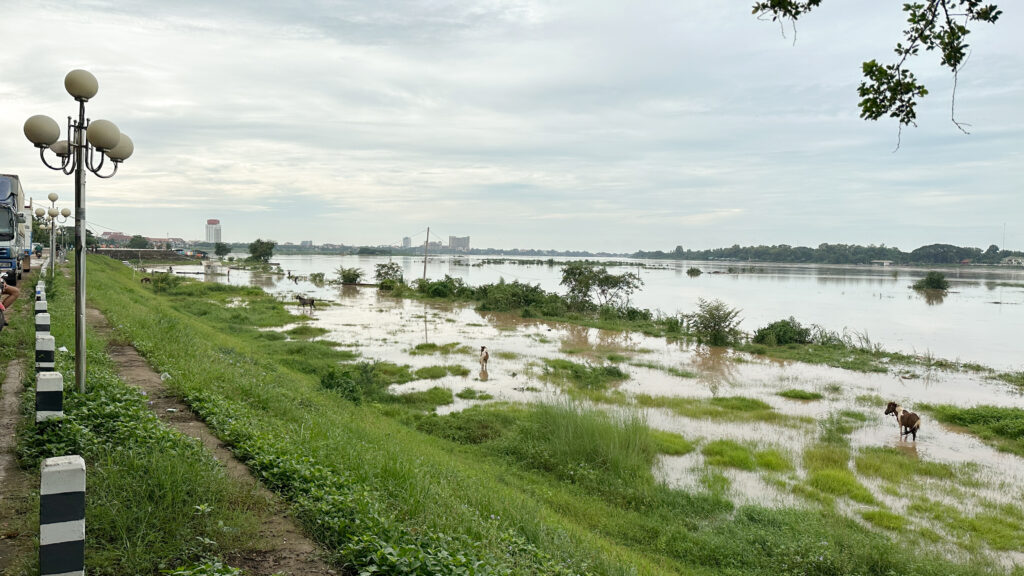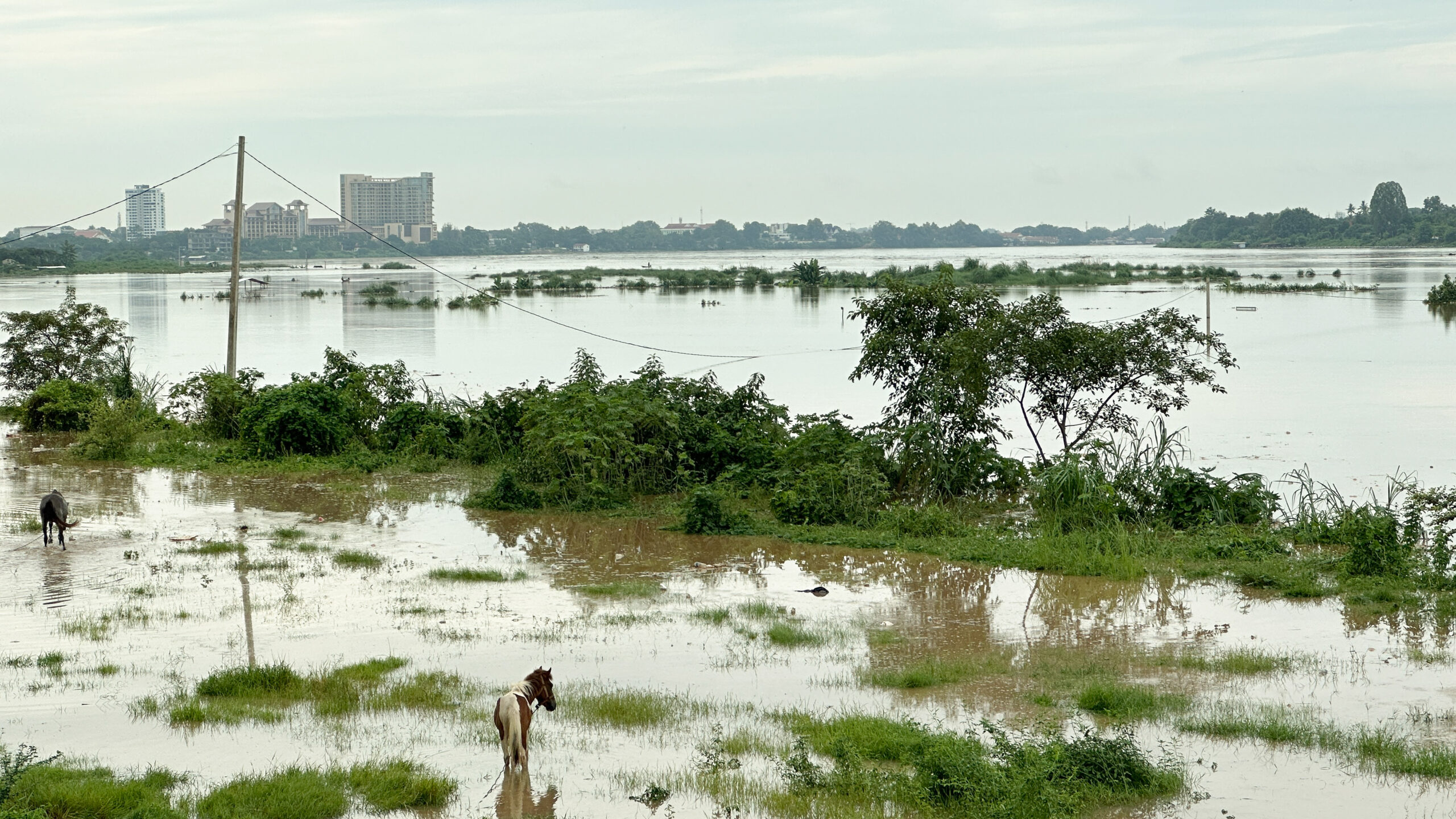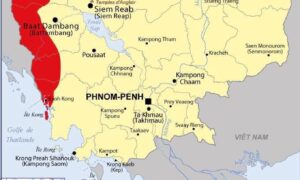Vientiane, Lao PDR, 9 August 2023 — Water levels in the Lower Mekong River Basin (LMB) have increased rapidly and are projected to rise further over the next five days – especially from Chiang Khan to Khong Chiam in Thailand and Vientiane to Savannakhet in Lao PDR, says the Mekong River Commission (MRC) Secretariat.
According to the MRC’s observed water levels and rainfall data, heavy rainfall across the Mekong region – which began on 5 August – has contributed to the rise, putting the river levels in most monitoring stations above their long-term values.

Photos provided by MCR
“The region has received more than average rainfall in August alone, or approximately 40% higher than it was in 2021 and 2022 over the same period,” says Dr Sothea Khem, the MRC Secretariat Flood Forecasting Specialist.
Due to low pressure in the LMB, Dr Khem adds, some parts of Lao PDR and Thailand were hit harder by flash flood last weekend. The situation has since triggered water levels to rise and affected properties and livelihoods.
In Thailand’s Chiang Khan, the station water level jumped from 7.70 metres to 12.26 m during 1–8 August. Over the next five days, a further rise of 0.50 m is expected. Its alarm level is 14.5 m.
Lao capital Vientiane saw its river level jump by 4.30 m over the same period, an increase by about 40%. Over the next five days, the river level is projected to rise between 2.34 m and 3.32 m. The increase will put the station level in the alarm state (11.5 m), while the flood warning is 12.5 m.
From Nakhon Phanom in Thailand to Pakse in Lao PDR, the river levels rose by more than 2.50 m and will see an up of about 2 m over the next five days. As a result, the water level at Nakhon Phanom will reach its alarm level of 11.5 m on 10 August and flood level (12 m) on 11 August.
In Cambodia, water levels from the stretches in Stung Treng to Kratrie increased from 0.92 m to 2.59 m over the same period. Over the next five days, the levels are likely to drop from 0.20 m to 1 m.
In Viet Nam’s Mekong Delta – Tan Chau on the Mekong River and Chau Doc on the Bassac River – the water levels were fluctuating and remained lower than their long-term values due to tidal effects.
The outflows at Jinghong hydrological station in China on the Upper Mekong Basin, however, saw a fluctuation over the same period. From mid- to the end of June, there was an average dip of 1.33 m per day of its water level.
Xayaburi dam “may” release water
The Xayaubri hydropower operator has warned it may release water from its dam over the coming days and downstream communities should be prepared for the changes in river levels, according to a notification to the Lao Ministry of Energy and Mines.
The 7 August notification said “due to continuous heavy rainfall in Lao PDR affected by the Khanun tropical storm and water discharge from other upstream hydropower plants” the inflow at the Xayaburi dam has increased.
The operator has warned the communities both upstream and downstream the dam to be prepared for further changes in river levels, especially for any “short notice” of water releases. The same operator added that it had already “activated the appropriate emergency action plan”.
More information and regular updates on river monitoring and flood forecasting can be found at the MRC social media and its website at www.mrcmekong.org.




























